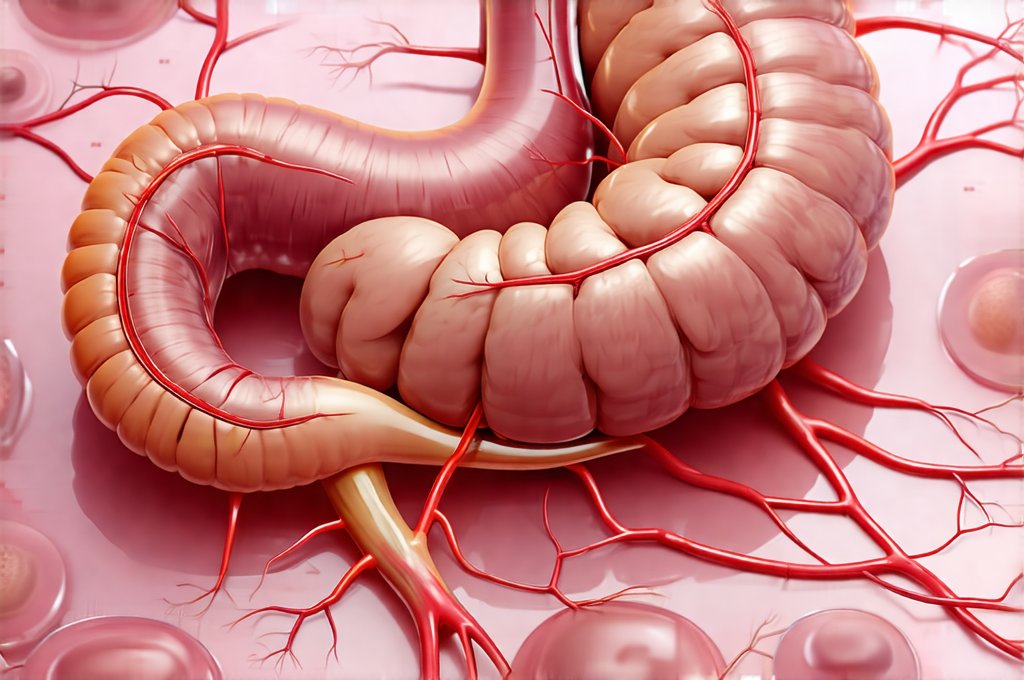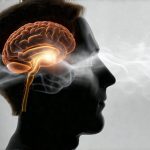The ability to sustain mental focus is arguably one of the most valuable assets in modern life. From students striving for academic success to professionals navigating complex tasks, and even individuals simply attempting to stay present amidst daily distractions, a sharp and unwavering mind is critical. However, many people struggle with this fundamental capacity, often attributing lapses in concentration to stress, lack of sleep, or sheer willpower. Increasingly, research suggests that the source of these struggles may lie not solely within the brain itself, but significantly within the gut – an area previously considered largely separate from cognitive function. This connection is far more profound than simply ‘trusting your gut’ instinct; it represents a complex bidirectional communication system known as the gut-brain axis, and understanding this relationship is unlocking new avenues for improving mental clarity through targeted diagnostics and interventions.
Traditionally, mental health and neurological performance have been viewed as primarily brain-centric phenomena. We’ve focused on neurotransmitter balance, neural pathways, and cognitive training to enhance focus and address attention deficits. While these remain vital components of well-being, they offer an incomplete picture without acknowledging the pivotal role played by the gastrointestinal system. The gut harbors trillions of microorganisms – collectively known as the gut microbiome – that exert a powerful influence on brain function through various pathways including the vagus nerve, immune modulation, and production of neuroactive compounds. A disrupted gut microbiome, often stemming from factors like poor diet, chronic stress, or antibiotic use, can contribute to inflammation, neurotransmitter imbalances, and ultimately, impaired cognitive performance. This is where gut diagnostics come into play – offering a window into the health of this often-overlooked ecosystem and providing insights for personalized strategies to restore balance and enhance mental focus.
The Gut-Brain Axis: A Two-Way Street
The gut-brain axis isn’t a one-way street; it’s a dynamic, reciprocal communication network. This means that signals travel from the gut to the brain, influencing mood, cognition, and behavior, but also from the brain to the gut, affecting digestion, immune function, and microbial balance. Consider these key aspects of this intricate relationship:
- Vagus Nerve: This cranial nerve acts as a direct communication highway between the gut and the brain. Signals originating in the gut microbiome can travel along the vagus nerve to influence brain regions involved in emotional regulation and cognitive processing.
- Neurotransmitter Production: The gut is a significant producer of neurotransmitters, including serotonin (often dubbed the “happy hormone”), dopamine, and GABA – all crucial for mood, focus, and motivation. Approximately 90% of serotonin is produced in the gut!
- Immune System Modulation: A large portion of the immune system resides within the gut. Gut microbial imbalances can trigger inflammation, which has been linked to cognitive decline and mental health disorders.
- Short-Chain Fatty Acids (SCFAs): These compounds are produced when gut bacteria ferment dietary fiber. SCFAs have numerous beneficial effects, including reducing inflammation, improving brain function, and enhancing neurotransmitter production.
Understanding this complex interplay is critical because it explains why a healthy gut is not just about digestive health; it’s fundamentally linked to cognitive vitality. When the gut microbiome is out of balance – a state known as dysbiosis – these communication pathways can be disrupted, leading to a cascade of effects that negatively impact mental focus and overall brain function. This disruption isn’t always dramatic or obvious; often it manifests as subtle but persistent difficulties with concentration, memory, or mood regulation.
The implications for preventative care are significant. Prioritizing gut health through dietary choices, stress management techniques, and potentially targeted interventions based on diagnostic testing can be a powerful strategy for supporting long-term mental clarity and resilience. It’s not about eliminating all ‘bad’ bacteria; it’s about fostering a diverse and balanced microbiome that supports optimal brain function. If you suspect your issues are rooted in the gut, consider exploring whether they are functional or structural.
Gut Diagnostic Testing: What Can We Learn?
Gut diagnostics are evolving rapidly, offering increasingly sophisticated tools to assess the health of the gut microbiome and identify potential imbalances. These tests aren’t intended for self-diagnosis but provide valuable information for healthcare professionals to personalize interventions. Here’s a look at some common methods:
- Stool Testing: This is currently the most prevalent method. It analyzes the composition of the gut microbiome, identifying different bacterial species present and their relative abundance. It can also detect markers of inflammation, digestive function (like pancreatic elastase levels), and parasite/pathogen presence.
- Breath Testing: Used primarily to assess Small Intestinal Bacterial Overgrowth (SIBO), a condition where excessive bacteria reside in the small intestine, leading to fermentation and gas production that can impair nutrient absorption and contribute to cognitive fog.
- Blood Testing: While not directly assessing the microbiome itself, blood tests can reveal markers of inflammation (like C-reactive protein), leaky gut syndrome (increased intestinal permeability), and nutritional deficiencies linked to gut health.
The results from these tests aren’t simply a list of bacteria names; they provide actionable insights. For example, low diversity in the microbiome is often associated with poorer cognitive function, while an overabundance of certain bacterial species can contribute to inflammation or neurotransmitter imbalances. A comprehensive report will typically highlight areas of concern and suggest potential interventions tailored to the individual’s specific needs – such as dietary modifications, probiotic supplementation, prebiotics (food for beneficial bacteria), or lifestyle changes. It’s crucial to interpret these results with a qualified healthcare practitioner who can provide guidance based on your unique health profile. You may want to explore ways to balance gut acidity as part of this process.
Identifying Root Causes of Cognitive Impairment
One of the primary benefits of gut diagnostics is their ability to help identify root causes underlying cognitive impairment, rather than simply addressing symptoms. Many individuals experiencing brain fog or difficulty concentrating may be prescribed stimulants or other medications that mask the problem without tackling the underlying issue. A gut diagnostic can reveal hidden factors contributing to these symptoms:
- Dysbiosis: An imbalance in the gut microbiome, potentially leading to reduced production of neurotransmitters or increased inflammation.
- Leaky Gut Syndrome: Increased intestinal permeability allows undigested food particles and toxins to enter the bloodstream, triggering an immune response that can impact brain function.
- SIBO: Bacterial overgrowth in the small intestine disrupts nutrient absorption and produces gas, contributing to bloating, discomfort, and cognitive fog.
By pinpointing these underlying issues, healthcare professionals can develop targeted interventions aimed at restoring gut health and improving mental focus. This approach is often more sustainable and effective than simply managing symptoms with medication. It’s also important to remember that the gut microbiome is highly individual. What works for one person may not work for another, highlighting the importance of personalized diagnostics and treatment plans. Addressing these issues can sometimes require you to reset the gut after a disruptive event like antibiotic use.
The Role of Dietary Interventions
Diet plays a pivotal role in shaping the composition and function of the gut microbiome. Gut diagnostic testing can inform dietary interventions tailored to an individual’s specific needs. For example:
- Elimination Diet: Identifying food sensitivities or intolerances that may be contributing to inflammation or disrupting gut health. This often involves removing common allergens (gluten, dairy, soy) for a period of time and then gradually reintroducing them to assess tolerance.
- Fiber-Rich Foods: Increasing intake of prebiotic fibers found in foods like onions, garlic, leeks, asparagus, bananas, and oats to nourish beneficial gut bacteria.
- Fermented Foods: Incorporating fermented foods like yogurt, kefir, sauerkraut, kimchi, and kombucha into the diet to introduce probiotic strains and enhance microbial diversity.
However, dietary changes should be made thoughtfully and under the guidance of a healthcare professional. Restrictive diets can sometimes do more harm than good if not implemented correctly. The goal isn’t necessarily about eliminating entire food groups but rather optimizing your diet to support a healthy gut microbiome and reduce inflammation. A personalized approach is essential, considering individual sensitivities, preferences, and dietary needs.
Beyond Diet: Lifestyle Factors & Future Directions
While diet is paramount, other lifestyle factors significantly impact the gut-brain axis. Stress management techniques like mindfulness, yoga, and meditation can help reduce cortisol levels (a stress hormone) that disrupt gut microbial balance. Regular physical activity promotes gut motility and microbial diversity. Adequate sleep is also crucial for both gut health and cognitive function. To further support a healthy system, consider how to naturally support gut transit.
Looking ahead, research into gut diagnostics continues to advance. We’re seeing the development of more sophisticated testing methods – including metagenomic sequencing which provides a deeper understanding of the functional capabilities of the microbiome – as well as personalized probiotic formulations tailored to individual microbial profiles. The future of mental focus may very well lie in harnessing the power of the gut-brain axis, and utilizing diagnostics to unlock its full potential for cognitive health and well-being. This isn’t just about treating illness; it’s about optimizing brain function from the ground up. It is also important to understand how your gut reacts to medications that can disrupt its natural balance. Finally, consider if you need to train the gut for better fiber tolerance.


















